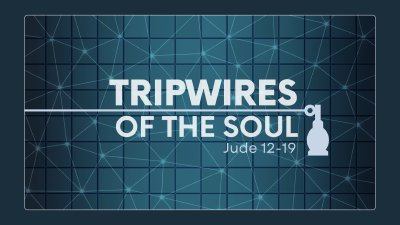There are many ideas and opinions about God. In fact, many people think they believe in the same God as others, yet when different people describe him it seems like they are talking about different gods. More specifically, within the population of people identifying as Christians, there is increasing confusion about who God is.
How exactly does one go about evaluating a god or gods? Should we assess our god based upon categories like power, creativity, originality, goodness, or likability?
The problem with so many views about god is that they cannot all possibly be true. According to the Bible, though God is eternal and transcendent, He has revealed Himself in creation. This is called the general revelation of God and is evidenced by the way the universe gives evidence of purposeful design. God has also revealed Himself specifically (specific revelation) through the Bible.
The last two verses of Jude (24-25) are a doxology to the God of the Bible. They serve as a testimony, recognizing and describing that God is uniquely worthy of glory.
As you prepare your heart to listen to the Word preached, consider who you believe God to be and how accurately your God compares with God as he has revealed Himself in scripture.

Is Your God Great?
Jude 24-25
August 14, 2022 • Pastor David Anglin • Jude 24–25
How to Contend for the Faith
August 7, 2022 • Pastor David Anglin • Jude 20–25
The letter of Jude is one of friendship and love to those who are beloved of God. It was written to an anonymous group of believers out of a sense of burden. With an urgency flowing out of his loving concern for the church, Jude calls these believers to contend for the faith. Notice that Jude is not calling them to contend for a political candidate, party, ideology, tribal identity, gender, the latest science, philosophy, or social concern. Jude is concerned about the heart and soul of their faith and their confidence in the Gospel of Jesus. He knows trouble is coming, and they must be equipped and armed with the settled truth of the Gospel. The first section of his letter reveals, why they must contend (5-19). The last section explains how they should contend (20-23). For many Christians, this is the hardest part. How do you think a Christian should contend for the faith? Fight, run, hide, attack, words, deeds, or avoidance? Jude’s encouraging words may surprise you and they will most definitely help you fight the good fight (the right fight and in the right way!)
Tripwires of the Soul
July 24, 2022 • Pastor David Anglin • Jude 12–19
This world is a dangerous place for those who desire to pursue a clean conscience and pure heart. There are few safe places for those watching over their own soul. We should not be shocked about the corrosive effects of being too immersed and entangled in the world. Yet, there is also potential danger among those who claim to be Christians and even appear to be spiritual leaders. It is as if there are intellectual and spiritual tripwires placed all around. These hidden tripwires are ready to blow up, damaging the soul of any person who questions or violates the “assumed values of our present moment.” “We are going through a great crowd derangement. In public and in private, both online and off, people are behaving in ways that are increasingly irrational, feverish, heard, and simply unpleasant. The daily news cycle is filled with the consequences. Yet while we see the symptoms everywhere, we do not see the causes” (Douglas Murray, The Madness of Crowds, p. 1). Many of the ideas and teaching circulating among Christians today are often a mess of Biblical, theological, philosophical, and spiritual inconsistencies. The effects of which are usually evident in the actions, attitudes, and lives of false believers and pretenders. Jude describes similar false believers as “hidden reefs” ready to shipwreck the faith of unsuspecting souls. Jude explains how to spot tripwires or hidden reefs, especially within churches and among those who claim to be Christian. Join us as we examine the tripwires of our day from Jude 12-19.
Cultivating Discernment
July 10, 2022 • Pastor David Anglin • Jude 11–19
The debate over the free flow of information on social media platforms is continuing to rage. Who has the right and responsibility for filtering fake news and false information? Up until the last few years, the majority of our population assumed that corporate news sources could be trusted. Today those who blindly trust the news media are now a minority. Over the last few years, there is a rapidly growing movement of independent news sources, bloggers, and podcasters asking hard questions and doing the hard work of searching for the real answers. Unfortunately, there are also many new voices pushing more false stories as well. Discerning citizens can no longer assume they are getting the real story without doing a little work to vet their source. The struggle to find and understand spiritual truth and meaning from false truth and false teachers is an equally difficult task. How can Christians separate false ideas and teaching from that which is true? In his book The Discipline of Discernment, Tim Challies says, “it is the duty of every Christian to think biblically about all areas of life so that they might act biblically in all areas of life.” He offers a helpful definition of discernment as “the skill of understanding and applying God’s Word with the purpose of separating truth from error and right from wrong.” The verses of Jude 11-19 are written for this precise purpose to aid believers in discerning truth from error and right from wrong. We cannot separate our thinking from our actions. We must learn to see past the appearance of spiritual godliness to evaluate the subtle characteristics, attitudes, and actions that may expose spiritual pretenders, imposters, and false teachers.







